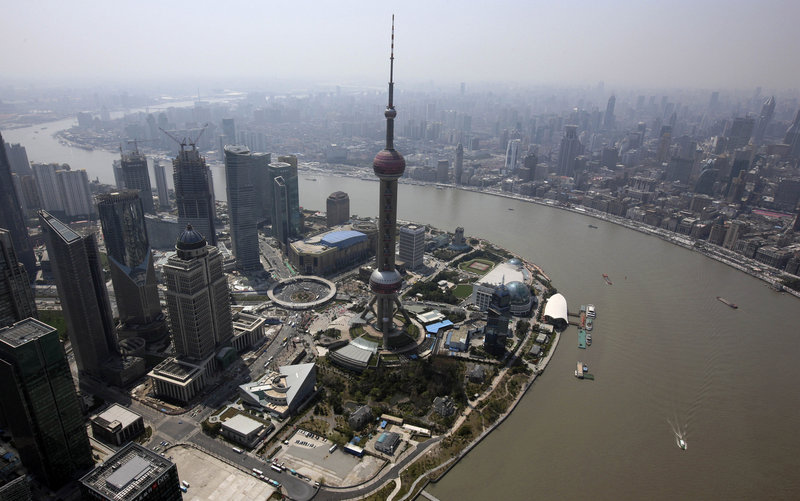SHANGHAI – A proud Shanghai threw open the gates of the 2010 World Expo today, kicking off an event that underscores the Chinese financial hub’s comeback as a major world city after decades of spartan industrialism following the 1949 communist revolution.
Like the 2008 Olympics, the World Expo is showcasing China’s growing economic and geopolitical sway, both for the world and for its own public.
Following a gala fireworks, fountains and laser-light celebration, dignitaries gathered today to declare the Expo open in a much less grandiose ceremony.
“Everything starts at the World Expo and all things come together at the Expo site,” said Jia Qinglin, the Communist Party’s No. 4 ranking leader.
Gates opened to what was expected to be a relatively limited number of ticket holders — all those not holding May 1 tickets were told to stay away because they would not be admitted.
Friday night’s star-studded indoor festivities included action star Jackie Chan, Japanese singer Shinji Tanimura, concert pianist Lang Lang and opera star Andrea Bocelli, among 2,300 performers. Afterward, guests moved outside for a lights, music and fireworks jubilee that lit up the drab banks of the Huangpu river with 1,200 searchlights, powerful lasers and mobile fountains.
The normally tea-colored waters glowed with 6,000 red and orange 1.6-foot LED balls and lights from a parade of flag boats representing nations participating in the Expo.
The United States, which has hosted more world’s fairs than any other nation but now generally sees such gatherings as passe, did not send a high-level government representative to the opening ceremony.
The Expo is expected to draw 70 million people over six months to pavilions from almost 200 nations designed to reflect the urban sustainability theme of “Better City, Better Life.”
In the West, world’s fairs no longer generate much excitement. But China, a late-comer to the club, has embraced with zeal a tradition rooted in both nationalism and internationalism that dates back to the mid-19th century.
China is splashing out $4.2 billion on the Expo itself, and many billions more on other improvements for this city of 20 million people. Freshly painted buildings, new highways, subway lines and airport terminals — all proclaim the country’s newfound status as a modern, increasingly affluent industrial giant.
“The government will spend whatever money it takes. For the leadership, it’s worthwhile,” said Zheng Yongnian, director of the East Asian Institute of the National University of Singapore.
The Expo caps a trio of landmark events that began with the Olympics, followed by the elaborate military parades for the 2009 celebration of the 60th anniversary of Communist Party rule.
Copy the Story Link
Send questions/comments to the editors.



Success. Please wait for the page to reload. If the page does not reload within 5 seconds, please refresh the page.
Enter your email and password to access comments.
Hi, to comment on stories you must . This profile is in addition to your subscription and website login.
Already have a commenting profile? .
Invalid username/password.
Please check your email to confirm and complete your registration.
Only subscribers are eligible to post comments. Please subscribe or login first for digital access. Here’s why.
Use the form below to reset your password. When you've submitted your account email, we will send an email with a reset code.